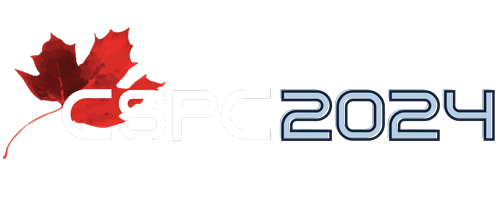Canada’s impact agenda is everyone’s agenda
Academic research delivers economic, cultural, social, health and environmental impact. This fact was highlighted in the final report from Canada’s Fundamental Science Review (“the Review”), chapter two. However, the Review was silent on a consistent and proven way to ensure this impact occurs – more specifically, how to create impact – and a way to measure the impact.
There is a new forum for these vital discussions: This year, the 2017 Canadian Science Policy Conference (CSPC) is creating new spaces to discuss impact. In this conference, York University and Research Impact Canada are participating in two key panels the common goal of which is to unpack precisely how impact is created, with special attention on the science-policy interface and the challenge of assessing impact.
Where does Canada fit in internationally?
Unlike the United Kingdom, Australia and the Netherlands, which have centralized impact assessment systems, Canada does not yet have an impact agenda. No one is debating the need for one. The time is now, as both Federal and Provincial governments are starting to require an impact component in funding. Proposed research, in today’s context, requires this vital component as well as the ability to measure it.
CSPC is aligned with this pressing necessity. Its impact agenda includes “measuring what difference science makes,” which clearly speaks to the value of science, and “creating the conditions for impact.”
Canadian governments are starting to require an impact component in funding.
Academic research provides foundation for impact
Partnerships are essential to maximizing impact. Academic research can’t operate in a vacuum when it comes to impact – a reality that was hinted at in the Review. Research needs to work in conjunction with policies that government develops guided by research and evidence; social services that non-profit organizations, including the health and education sector, deliver, bolstered by research; and products that industry builds, again based on the evidence provided by research. This is an ecosystem in which research provides the foundation. Only by working in collaboration with partners from the private, public and non-profit sectors will academic institutions create the conditions to maximize the impact of research.
This does not mean that all research must be applied. On the contrary, the roles of basic research, academic scholarship and artistic creation are evermore important. Fundamental research provides a base from which evidence-based policies, services and products can emerge.
The role of basic research is evermore important.
Impact has almost limitless breadth
Far-reaching impact crosses disciplines and countries. For example, climate change is not merely a natural science occurring in one country; Indigenous issues are not confined to social science; and mental illness is just a health science.
Due to this remarkable breadth, which clearly speaks to many kinds of impact, to maximize research-borne impact, we need policy and institutional frameworks that acknowledge the following: science is more than science, technology, engineering and mathematics (STEM); partnerships are more than industry; and impact is more than commercialization.
Leading the charge in impact maximization
Innovation York, York University’s innovation Office, leads the University’s efforts to maximize the impacts of our research. Innovation York has diversified beyond commercialization to include entrepreneurship, industry liaison and knowledge mobilization that has helped to create impact. Examples include services for at-risk youth in Peterborough, shelters for victims of domestic violence in Ontario, services for immigrant settlement in York Region and bullying prevention services reaching over 400,000 children across Canada every year.
These are just a few examples from York. Thirteen other Canadian universities have joined York working collectively as Research Impact Canada to develop and share the best methods of creating and measuring impact. Launched by York and the University of Victoria in 2006, Research Impact Canada now includes universities that span the spectrum from those with a polytechnic tradition, such as Kwantlen Polytechnic University, to U15 universities such as UBC, Western, McMaster, Saskatchewan and Université de Montréal.
With this shared goal around impact, these universities are developing institutional supports for knowledge mobilization that include undergraduate service learning, graduate student internships, collaborative research, public engagement and science Communications strategies for dissemination of information that spurs engagement with audiences, stakeholders and influencers. All efforts are designed to connect sciences to the private, public and non-profit organizations.
Impact truly is everyone’s job.
Learn more about Canada’s emerging impact agenda
Join us at Research Impact Canada on these dates:
Thursday, November 2, 3:30 pm: Mobilizing research for policy impact (Panel #304)
Friday, November 3, 1 pm: Realizing the impact chain (Panel #409)
To learn more about Research Impact Canada, visit the Research Impact Canada website. For more information on Innovation York, visit the Innovation York website or watch the video.




